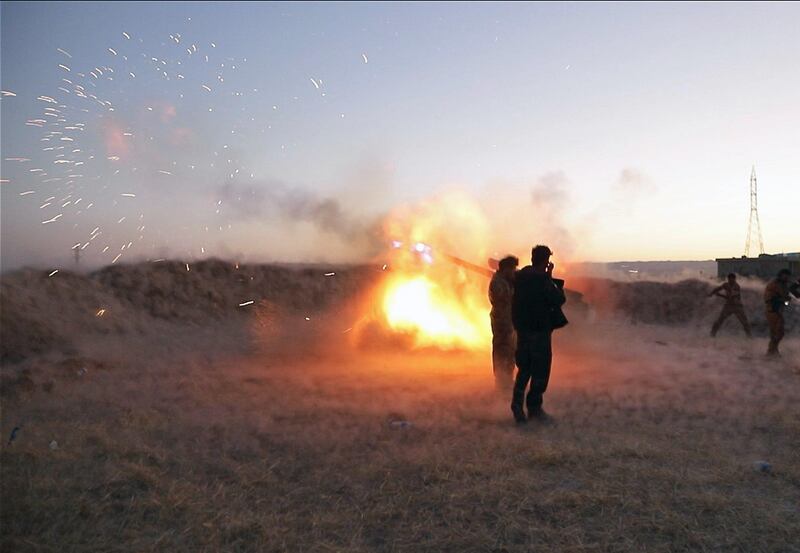What oil gives, oil can take away. Over the past decade, the Kurds of Iraq used petroleum revenues to build the basis of an independent state. But following their independence referendum of September 25, the decisive response of Baghdad has stripped them of the oil-fields vital to their budget.
The open secret of the Kurdish oil boom was that, at least until 2013, it was largely financed by the region’s revenue share from Baghdad. The fine new towers of Erbil were built with money derived from the oil-fields of Basra. When the Kurdistan region’s allocation of the federal budget was cut off following disputes over independent oil exports and sales, it plunged deeply into debt – to local banks, Turkey and oil companies and traders.
The region’s financial position improved when, following the fall of Mosul to ISIS in June 2014, Kurdish forces moved into a vacuum and took control of most of Kirkuk. The giant Kirkuk field, discovered in 1927, is divided into three domes: the southernmost and oldest, Baba Gurgur, the middle, Avana and the northernmost, Khurmala, which has been operated by Kurdish company KAR since 2009. Nearby is another large field, Bai Hassan, and two smaller ones, Jambur and Khabbaz, which are all linked by pipeline to Avana. Baghdad has now regained control of all except Khurmala.
From Baba Gurgur, the main export pipeline runs south-west to the refining town of Baiji and then north to the Turkish port of Ceyhan, but it has been shut down by ISIS attacks since 2014. A separate pipeline was opened by the Kurds in 2013 to take oil from Khurmala and other fields to the Turkish border and connect to the Kirkuk-Ceyhan pipeline.
______________
Read more:
[ Are fears of a rising threat of disruption to oil industry justified? ]
[ Russia and Saudi see gains through closer ties ]
______________
Output from the Taq Taq field, once the Kurdish region’s flagship, has collapsed as reserves were found to be greatly overstated, and the geology of several other Kurdish fields has disappointed. This left the Kurdistan Regional Government (KRG) dangerously dependent on Kirkuk for revenues. In the space of a day, that control has evaporated, and there are even suggestions of federal Iraqi forces advancing on Khurmala and other Kurdish areas.
If the Kurds were to lose control of Khurmala, they would not only be deprived of its 110,000 barrels per day (bpd) production, but also the 13,500 bpd from Taq Taq, whose export pipeline connects there. That would leave them with just Tawke, at 110,000 bpd, Taqa’s Atrush field with 22,000 bpd, Shaikan with 38,000 bpd, and a gaggle of small fields. Export revenues of some $300 million monthly will not cover a budget of $700 million, nor repay the traders who took big risks in advancing the KRG funds.
The Kurds’ political mistakes are well-known: they forgot their dispensability after the defeat of ISIS, miscalculated their support in Washington, and underestimated the determination of Baghdad, Tehran and Ankara to prevent their secession. The financial succour provided by Rosneft’s entry to the region and its contribution to $3 billion of oil pre-payments has not yet been backed up by Russian political assistance.
Though all Kurdish parties ultimately supported the referendum, it was widely seen as a mechanism to preserve incumbent president Masoud Barzani and his Kurdistan Democratic Party (KDP); the rival Patriotic Union of Kurdistan (PUK) appears to have struck a deal to allow the Iraqi forces into parts of Kirkuk. The KDP’s control of the oil file, and its consequent revenues and opportunities for corruption, contributed to this disunity, as it had as far back as the 1994-7 civil war, when the KDP and PUK clashed over oil-smuggling routes.
The Kurdish government was seduced by the lure of Kirkuk, and failed to develop its own fields sufficiently. They contrapted a patronage-based, unsustainably costly rentier state. The confidence of oil investors has been undermined by inadequate and late payments of their costs, and long delays in approving new developments. ExxonMobil has withdrawn from most of the blocks it entered with such fanfare in 2011, and the future of Bashiqa, in a disputed area, looks doubtful too. Though Rosneft has announced it has signed for five, unnamed exploration blocks, several of these too are understood to be in debatable territory now likely to be back under Baghdad’s control. And Chevron has ceased drilling due to the post-referendum disruption.
The region’s major gas resources could have saved it money at home which was spent on expensive diesel for power generation, and developed domestic industries, while underpinning exports to Turkey and even federal Iraq. But only in August did it settle a long-running arbitration case with Sharjah-based Dana Gas, allowing it to move ahead with fields that would supply a new pipeline to Turkey. A Turkish pipeline would have given it some more leverage over Ankara as winter approaches.
For now, the Kurds have little choice but to negotiate with Baghdad, playing the few cards that they still hold. The main Kirkuk-Ceyhan pipeline, which Iraqi oil minister Jabbar Al Luaibi wants to reopen, runs through Kurdish territory. Another deal on exports and revenue-sharing is possible, along with cooperation on refining and gas supplies. But if the Kurds want even to regain their autonomy, let alone dream of independence again, they need a sustainable, diversified economy, one that is not dependent on a few oil-wells that can so easily change hands.
Robin M. Mills is CEO of Qamar Energy, and author of The Myth of the Oil Crisis






